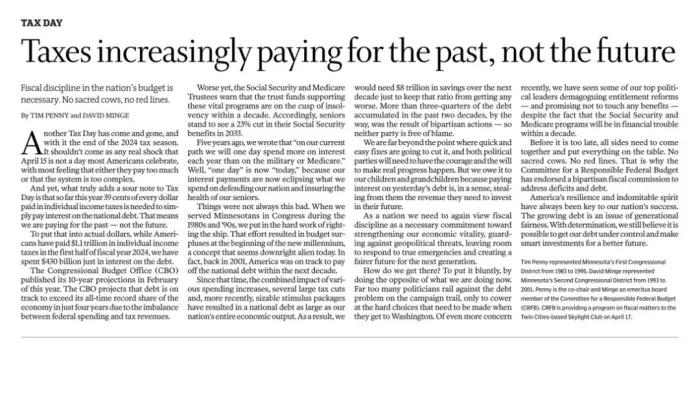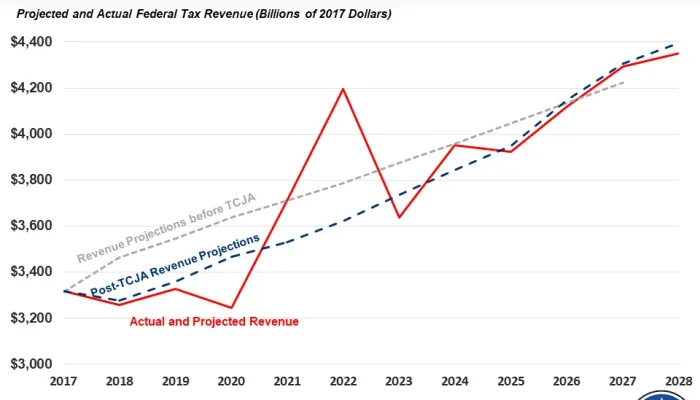Weinstein: Make Taxes Simple
As Senate Finance Committee Chairman Max Baucus (D-MT) and House Ways & Means Chairman Dave Camp (R-MI) continue their cross-country tax reform roadshow, they will hear a wide range of opinions on how to reform our federal tax code. But Paul Weinstein of the Progressive Policy Institute, a former senior advisor to the Fiscal Commission and CFRB consultant, wrote an op-ed in The Hill about a key principle of reform they'll hear quite often: the need to dramatically simplify our tax system.
Ultimately, the most likely feedback they [Baucus and Camp] will hear is the need for simplification of a system that has simply grown too complex for most Americans to understand, with damaging consequences to the nation’s economy. The tax code’s byzantine complexity costs business and individuals hundreds of billions in compliance. The IRS's National Taxpayer Advocate estimated that individual and business taxpayers spend 6.1 billion hours to complete filings. This is money and time wasted.
Not only would a simpler code reduce red tape, it would also level the playing field, create a better economic environment for businesses of all sizes, maintain progressivity, and raise revenues for deficit reduction and urgent investments in our nation’s future.
Weinstein's op-ed summarized a policy brief from last month (see CRFB coverage here) to argue that simplification can achieve many policy goals at the same time. Simplifying the code should make our tax system fairer and better promote economic growth, while maintaining the current level of progressivity, and raising revenue needed for deficit reduction. Doing so, Weinstein emphasizes, will require reducing or reforming tax expenditures. But doing so won't be easy:
Each tax loophole is fiercely guarded by the special interests whom it benefits. Closing tax breaks en masse will not be easy, but it is essential both to lower tax rates for middle class families today, and to whittle down public debts that imply crippling tax burdens on tomorrow's taxpayers—our children.
Weinstein also cautions that while simplicity should be one of tax reform's guiding principles, it should not be achieved in ways that conflict with his other five key principles of reform: promoting economic efficiency and growth, reducing the number of tax incentives to lower rates and rebuilding the nation's revenue base, maintaining progressivity, reducing errors and avoidance, and better aligning state and federal rules. For instance,
Simplification should never abandon the principle of progressive taxation. One example of such an approach is the so-called “flat tax.” It sounds simple, but in order to keep tax revenue stable the rate would be considerably higher than the 15 percent rate most taxpayers pay today. That means the majority of Americans would be experience a substantial tax hike in the name of creating a tax code with a single rate.
Click here to read Weinstein's full post.


